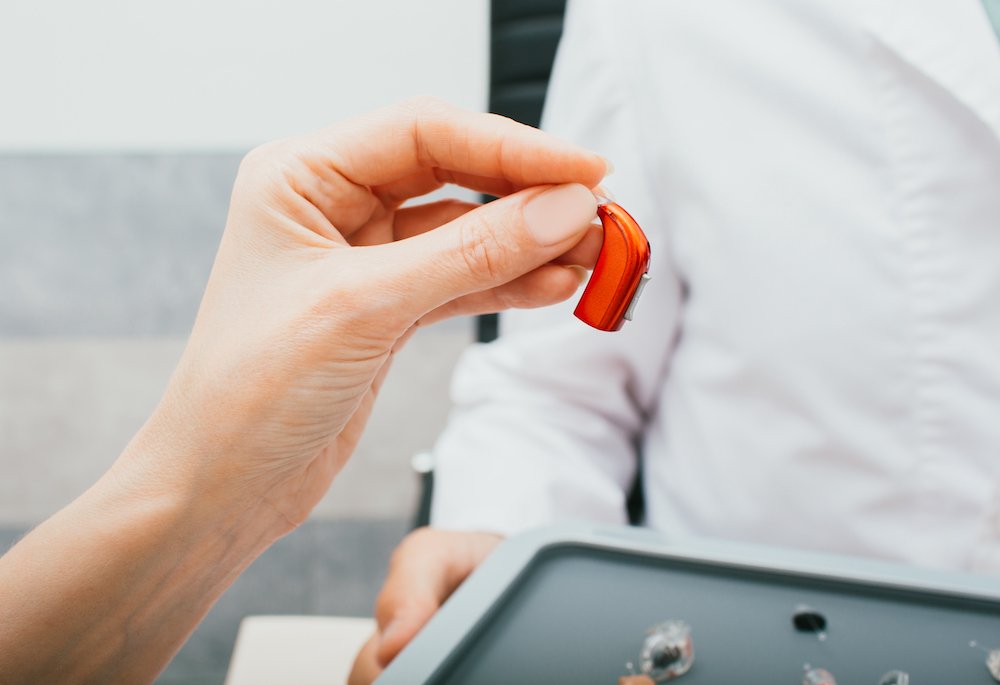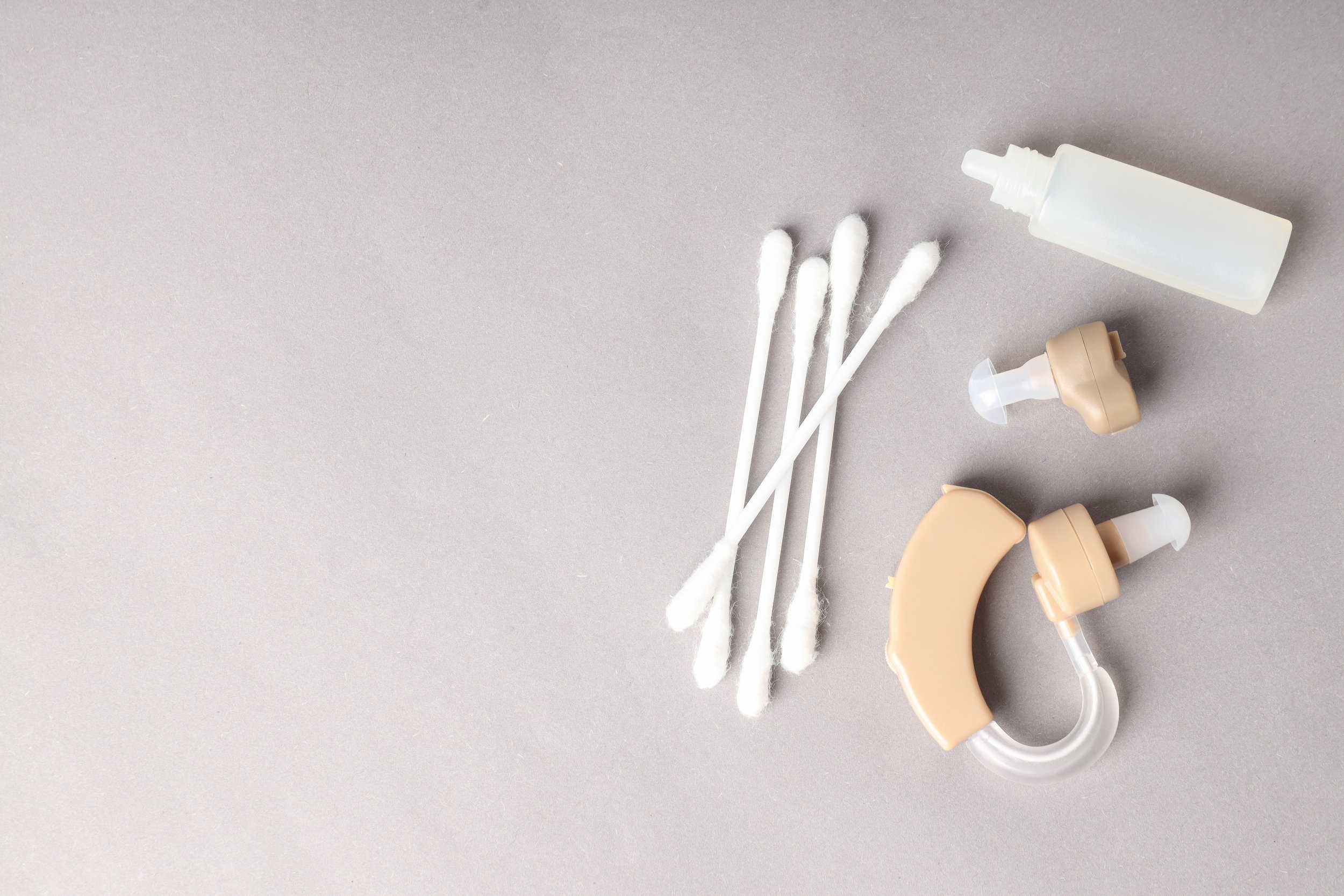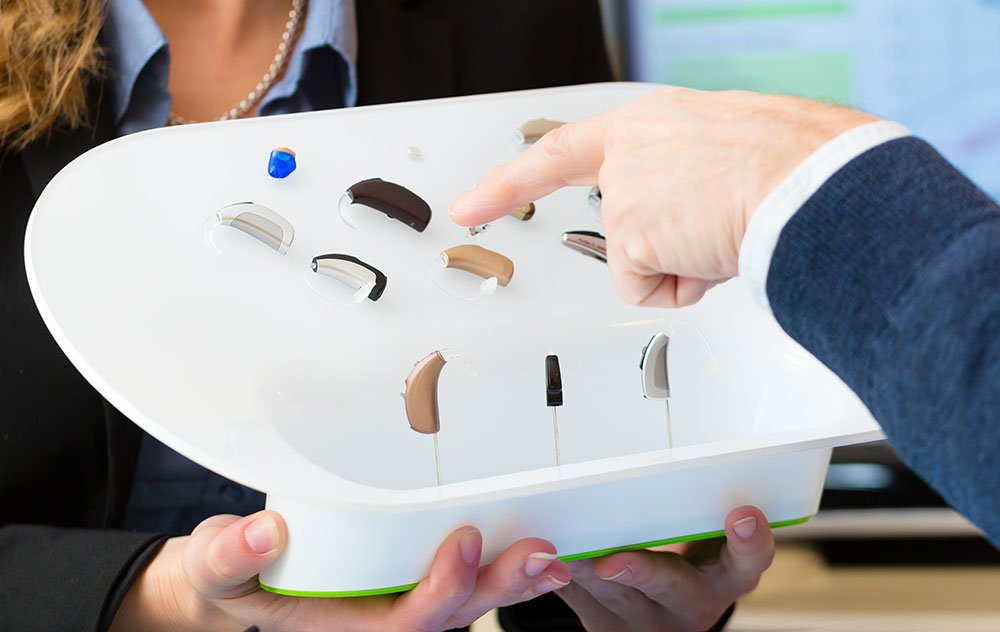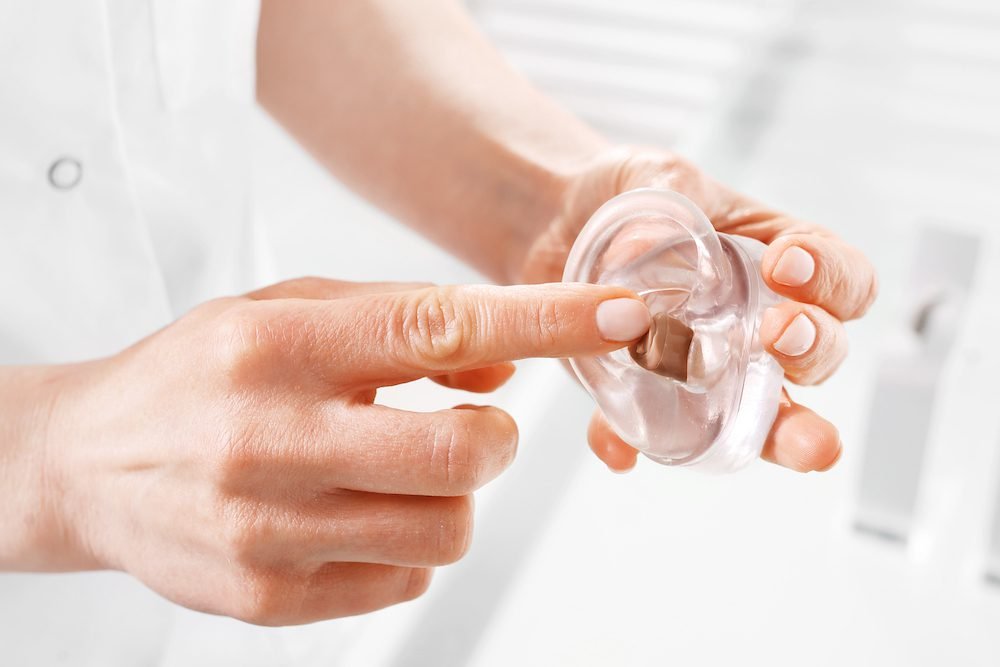Audiologist Answers 4 FAQs About Hearing Tests

The hearing test is one of the most common reasons that patients visit an audiologist. None are better qualified to examine your ears and diagnose any issues regarding hearing and balance. However, if you have never had a hearing test before, you may some questions about it. To help you feel more comfortable and know what to expect, here are some of the most frequently asked questions regarding the test.
What happens during a hearing test?
The hearing test is carried out in a few different stages. First, you will be asked questions about your lifestyle and medical history that can illuminate any potential issues with your hearing. After that, an otoscope will be used to carry out a visual examination to make sure there is no earwax build-up, infections or visible damage. A pressure test using a safe, small probe can see how your ear responds to pressure. Finally, tone and voice tests will help the audiologist better understand your range of hearing.
Can I prepare in advance for my hearing test?
As mentioned, you will be asked questions about your history, medically and lifestyle-wise. It’s a good idea to obtain records of your medical history in advance and to think about what kind of environments you spend your time in. This includes any recent instances of excessive noise. Bring the details of any medical insurance policy you are expecting to cover your costs with, too. If you suspect you suffer from moderate to severe hearing loss and you are concerned that you won’t be able to understand what your audiologist is saying or you could simply use someone to help you absorb the information provided, you are more than welcome to bring a close friend or family member.
How often should I have one and how long will it be?
Just as you should have regular dental and medical check-ups, you should make hearing tests a part of your health routine, too. An annual test is recommended, even if you have already been diagnosed with hearing loss. As for the duration of the test, they tend to take at least one hour. If you need to make time in your schedule, you will want to set aside more than this, however.
What happens if I have hearing loss?
Should a hearing exam show that you do suffer from hearing loss, you will be given the results immediately. Hearing tests don’t usually require any delay. Following your diagnosis, you may be given a range of treatment options, including fitting a hearing aid. These treatments will be carried out in further appointments down the line. You may also be given ear protection or advice on how to prevent your hearing loss from getting any worse in the meantime.
If you are concerned that you might be suffering from hearing loss, tinnitus or some other issue, you should arrange a hearing test with your audiologist as soon as possible. The sooner we can find the problem, the better we can treat it and prevent any further trouble.
Read our latest blogs
A lot of people have no idea how to clean their ears. If you think that your ear is filled with wax or clogged up, you might think about reaching for something to get rid of the issue. This could be a small piece of tissue, a pen lid or anything pointy to shovel it out.
A lot of people have no idea how to clean their ears. If you think that your ear is filled with wax or clogged up, you might think about reaching for something to get rid of the issue. This could be a small piece of tissue, a pen lid or anything pointy to shovel it out.
A lot of people have no idea how to clean their ears. If you think that your ear is filled with wax or clogged up, you might think about reaching for something to get rid of the issue. This could be a small piece of tissue, a pen lid or anything pointy to shovel it out.
A lot of people have no idea how to clean their ears. If you think that your ear is filled with wax or clogged up, you might think about reaching for something to get rid of the issue. This could be a small piece of tissue, a pen lid or anything pointy to shovel it out.
A lot of people have no idea how to clean their ears. If you think that your ear is filled with wax or clogged up, you might think about reaching for something to get rid of the issue. This could be a small piece of tissue, a pen lid or anything pointy to shovel it out.
A lot of people have no idea how to clean their ears. If you think that your ear is filled with wax or clogged up, you might think about reaching for something to get rid of the issue. This could be a small piece of tissue, a pen lid or anything pointy to shovel it out.
In most situations, hearing loss is caused by damage to the nerves in your inner ear. If these nerves start to weaken, then it’ll negatively affect your ability to hear.
Like most technology, hearing aids have some problems and malfunctions every now and then. You might find that you need to send your hearing aids off for repairs. It could be something simple, or it might be a little more complicated.
When is a cell phone hearing aid compatible? Fortunately, senior cell phones that do not interfere with hearing aids are clearly marked as such. In the United States, hearing aid compatibility testing is mandatory.
When is a cell phone hearing aid compatible? Fortunately, senior cell phones that do not interfere with hearing aids are clearly marked as such. In the United States, hearing aid compatibility testing is mandatory.
When is a cell phone hearing aid compatible? Fortunately, senior cell phones that do not interfere with hearing aids are clearly marked as such. In the United States, hearing aid compatibility testing is mandatory.
When is a cell phone hearing aid compatible? Fortunately, senior cell phones that do not interfere with hearing aids are clearly marked as such. In the United States, hearing aid compatibility testing is mandatory.
When is a cell phone hearing aid compatible? Fortunately, senior cell phones that do not interfere with hearing aids are clearly marked as such. In the United States, hearing aid compatibility testing is mandatory.
If you’re going to see an audiologist for the first time, you may be wondering what to expect. You may be slightly nervous, or you might be excited about the prospect of finding out more about hearing aids. If you’ve got your first appointment coming up, here are four things you can expect.
Anyone that has encountered signs of tinnitus will know that the condition can be very irritating. Severe cases can even feel debilitating, forcing you to stay in bed due to problems with your balance and hearing.
A hearing test provides a measurement of the sensitivity of a person’s hearing across the full range of speech. The test will measure the quietest sound that can be heard several points across the speech range. This hearing test is termed an audiogram and will be performed by an audiologist.
If you believe you may be experiencing hearing loss, then attending a hearing aid evaluation can be the first step towards accessing treatment.
Hearing loss comes in different shapes and forms. For people who are experiencing hearing loss for the first time, it’s hard to tell whether they are dealing with severe or mild hearing loss without running a hearing test.
Millions of people in the United States wear hearing aids, and for many, it is a life-changing experience. However, for some, wearing a hearing aid can be difficult because the aid does not fit properly. If you are having trouble with your hearing aid, you may need to get a new one.
Your hearing aids will require cleaning like anything else you use regularly. Quality hearing aid cleaning will provide years of reliable and better hearing.
It’s a question that often comes up for people who are new to hearing aids – how long do they last? The answer, of course, depends on a number of factors, such as the make and model of hearing aid, how well they’re taken care of and how often they’re used.
Most people take their hearing for granted until they experience a hearing loss. Your hearing health depends on many things, such as the health of your ears, your ability to understand speech and how well you adapt to changes in your hearing.
Make hearing aid repairs simple with our essential guide. Learn how to avoid frequent issues and extend the life of your hearing aids with easy maintenance practices.
Get a detailed overview of the hearing aid fitting process, including what happens during your appointment and how to choose the right device for your needs.
Discover the 4 key steps of a successful hearing aid evaluation and what to expect during your hearing aid test to ensure the best hearing solution for you.
Hearing loss is a significant cause of social isolation, which can make you vulnerable to developing depression and even dementia. If you are experiencing hearing loss to any degree, you need to consider corrective devices such as hearing aids to improve your lifestyle and maintain your communication. Beware, however, that investing in hearing correction is a commitment not to take lightly.
When it comes to hearing protection, earplugs are one of the most popular options. Offering the ability to comprehensively block sound and preserve hearing health, along with easy portability, it is no surprise that earplugs enjoy such prominence. But to enjoy these benefits, it is important to find the right kind of earplugs for you.
Discover safe and effective ways to remove ear wax with manual techniques and irrigation methods. Learn how to care for your ears and prevent buildup.
People tend to clean their ears by themselves with items they can find at home. This may include little picks, it could include cotton swabs or it might even just be their finger.
So, you’re thinking about hearing aids in comparison to cochlear implants and want to get more information on both? Although your audiologist is the best person to consult with regards to this, we’re going to delve into this topic in today’s blog post.
















